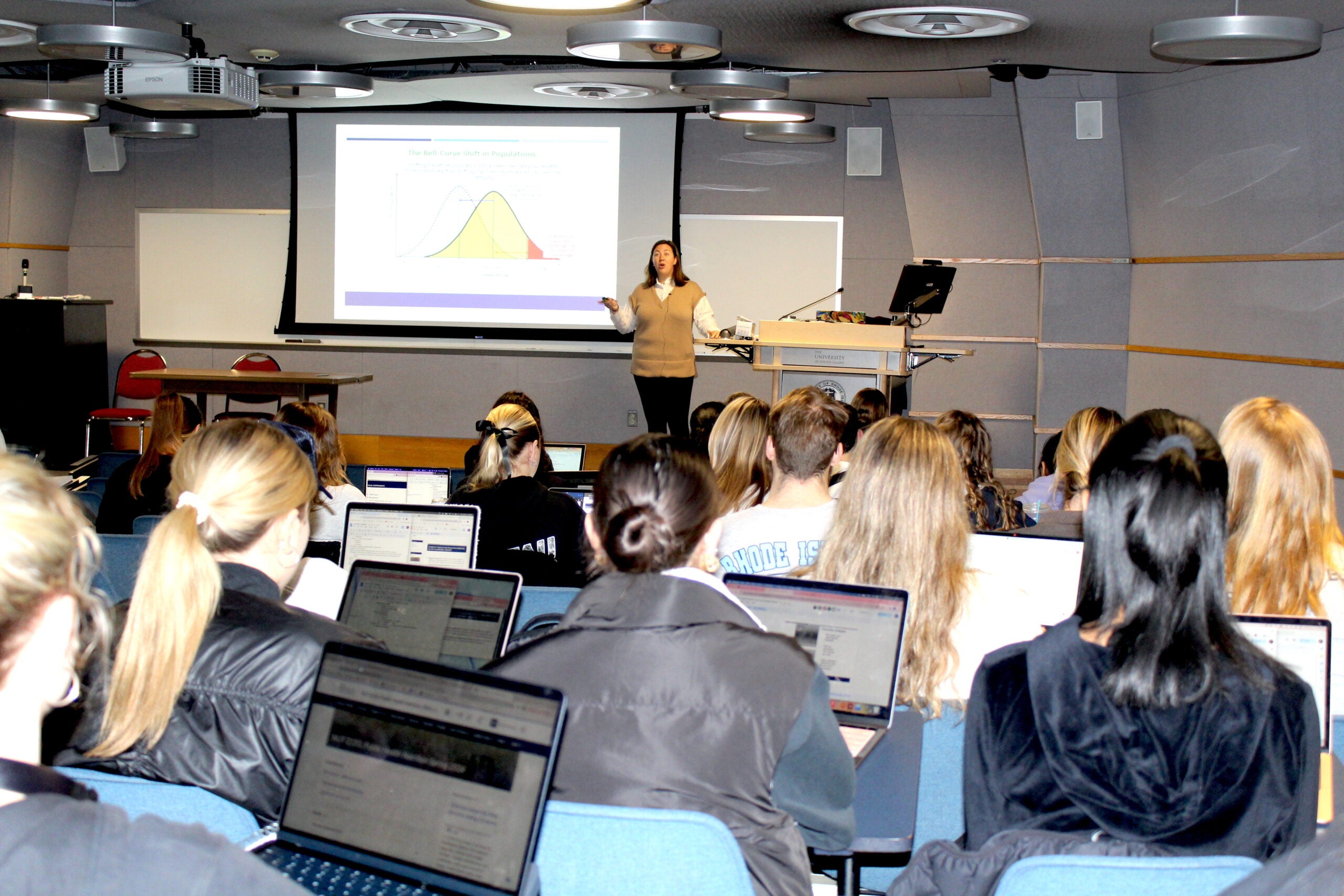Formerly Nutrition and Food Science, students can find classes under course code ‘NUT’
Drawing from such disciplines as biology, chemistry, math, biochemistry, anatomy, physiology and microbiology, the Department of Nutrition applies scientific knowledge to human health and wellness, helping prepare students for careers in a broad range of health-related professions from registered dieticians to medical doctors.
Formerly known as the Department of Nutrition and Food Sciences, the department recently changed its name to better reflect the academic expertise and areas of research, which are spread across community, biochemical and molecular nutrition with a focus on human health, as opposed to the science behind food production, according to Clinical Assistant Professor Amanda Missimer.
“The ‘Department of Nutrition’ better reflects the teaching, research and outreach of our faculty,” Missimer said, noting that students looking to register for Nutrition courses will find the classes under the course code NUT instead of the former NFS. “The science courses in the major are centered around human health. We talk about structures and functions in the human body, and how your systems and health are influenced by the food you choose to eat each day. Since nuts are a great source of fiber and nutrients, the humor behind the new course code is not lost on us.”
The department offers multiple undergraduate and graduate programs:
Bachelor of Science in Nutrition: Nutrition is an applied science that addresses the social, economic, cultural, and psychological implications of food and eating. By blending scientific knowledge, human health, clinical application, public policy and experiential learning, students are prepared for pre-health professional degrees, graduate study, and careers in public health, government, or the community.
Bachelor of Science in Dietetics: The program prepares students for a career as a registered dietitian/nutritionist to help people meet their nutritional needs through diet counseling and nutrition support, with the overall goals of improving health and preventing disease throughout the lifespan. Dietetics integrates knowledge of food, nutrition, management, sciences, and social sciences to improve the dietary intake and health of individuals and communities.
Accelerated B.S. to M.S.: The program allows students to complete the required coursework for both a Bachelor of Science degree and Master of Science degree while conducting research and writing a thesis with a major professor on an accelerated timeline of five years.
M.S. in Dietetics (online): Students earn a master’s degree in dietetics online while completing supervised experiential learning through a Sodexo dietetic internship.
M.S. in Nutrition: The two-year program is designed to teach students to critically analyze, communicate and disseminate current and emerging nutritional science to the public, the scientific community, and other stakeholders. It prepares students for leadership positions in a variety of settings including health care, industry, and government. Graduates are also prepared for advanced doctoral study.
Doctor of Philosophy in Health Sciences: Health Sciences is a rapidly changing and evolving discipline, requiring highly trained, critical thinkers to solve some of society’s most important health-related problems. By working with faculty from multiple departments/programs in the College of Health Sciences, the Ph.D. in Health Sciences will provide students with hands on basic, applied and translational courses together with research laboratory or field experiences needed to solve these health-related problems.
Graduate Dietetics Future Education Model: The program provides an outstanding didactic curriculum including coursework in sustainability, research, epidemiology, international nutrition, nutrition metabolism, and community. Students also get more than 1,100 hours of supervised practice in professional work settings.
Minor in Nutrition: Students can complete a Minor in Nutrition by completing 18 credits in NUT courses at the 200 level or above.

